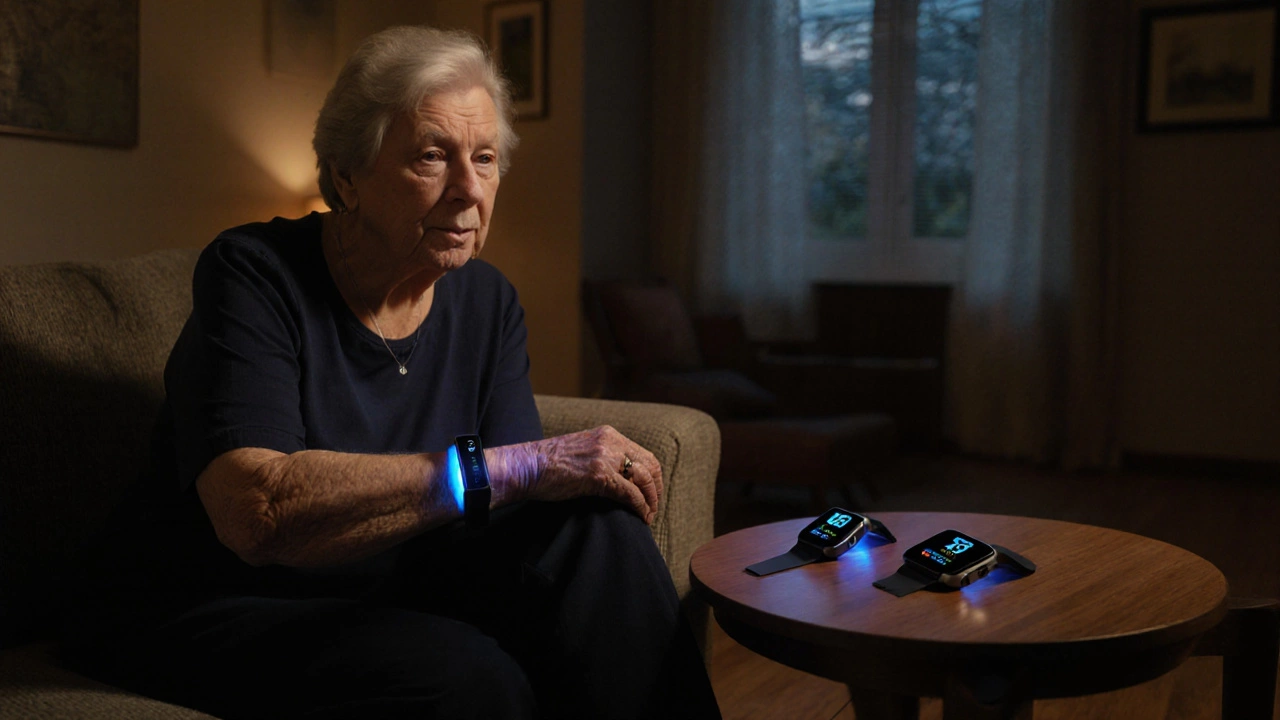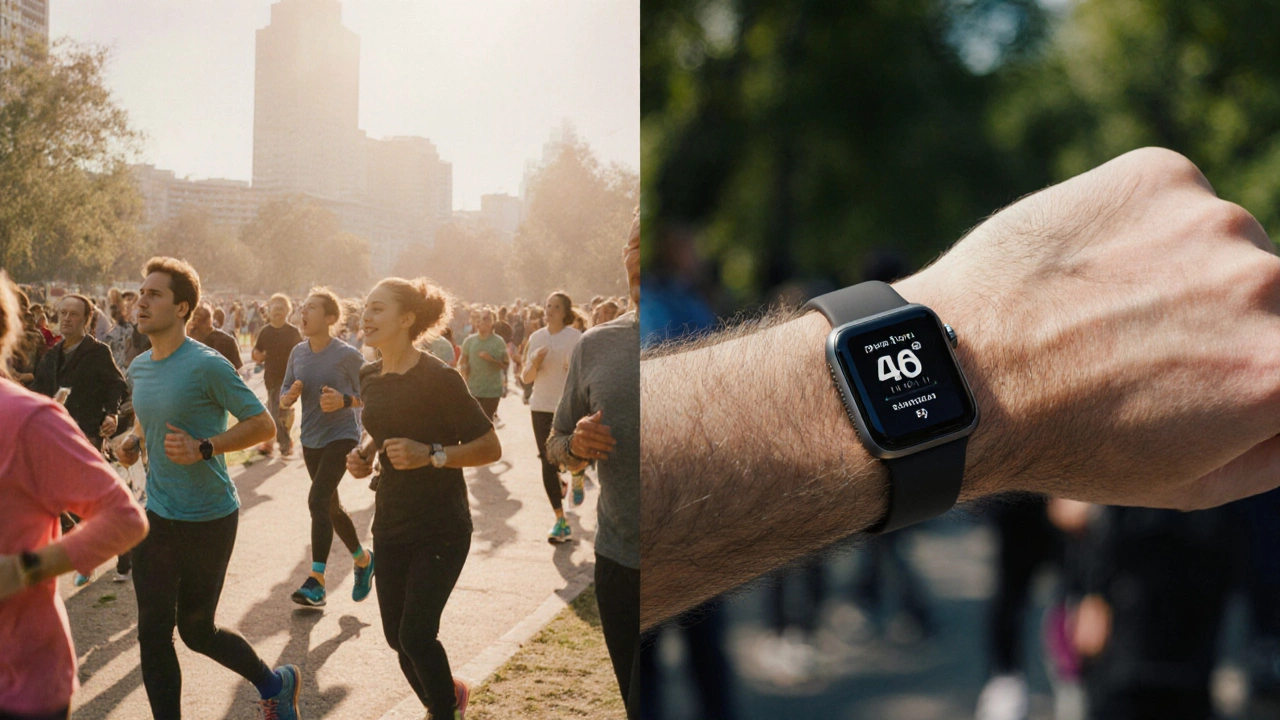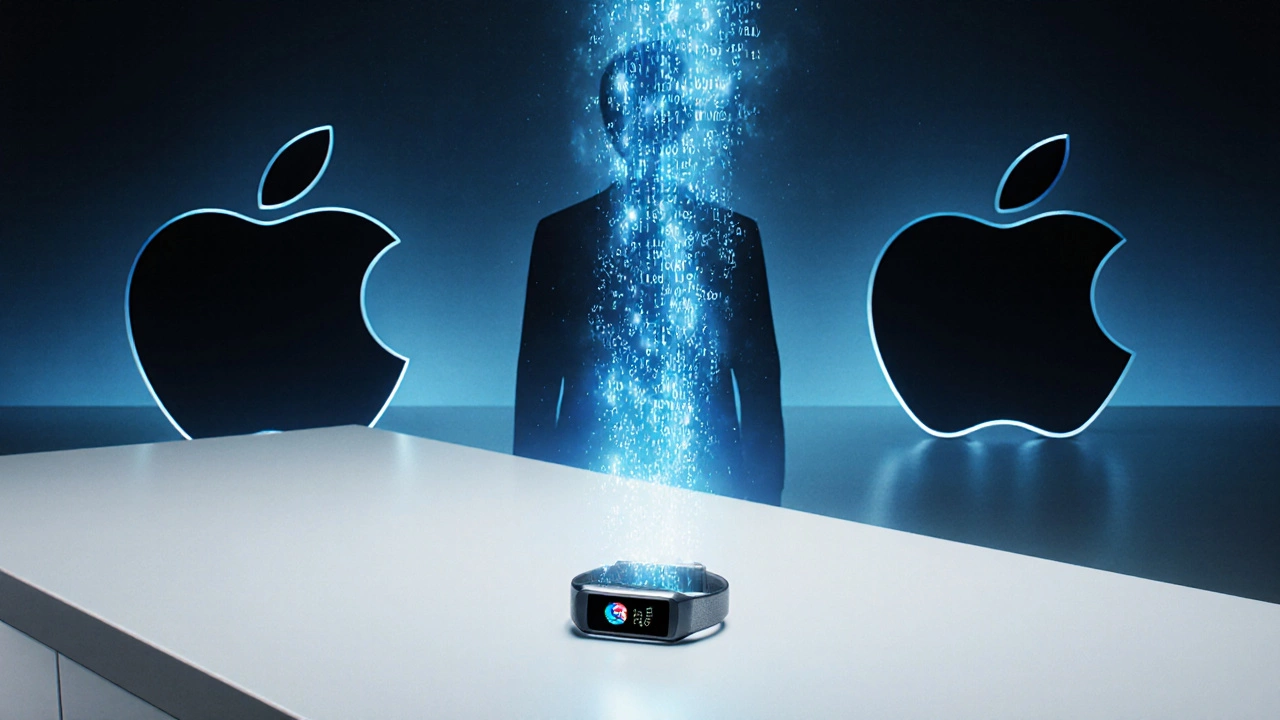Is Fitbit in decline? Here's what the data shows in 2025

Fitbit vs. Competitors Comparison Tool
Your Priorities
Results
Your priorities will determine your best fit
Adjust the sliders above and click Calculate
Five years ago, Fitbit was everywhere. You saw it on runners in the park, on office workers at their desks, on grandparents tracking their steps. It wasn’t just a gadget-it was the default choice for anyone who wanted to know how many steps they took or how well they slept. But now? You don’t see as many Fitbits. The market has changed. Apple Watch dominates the wrist. Samsung and Garmin have carved out their own spaces. And Fitbit? It’s quieter. So is Fitbit in decline? The answer isn’t simple. It’s not dead-but it’s not thriving like it used to.
Fitbit’s sales have dropped since the Google acquisition
Google bought Fitbit in January 2021 for $2.1 billion. At the time, investors cheered. They thought Google’s tech muscle would give Fitbit a boost. But the opposite happened. Fitbit’s quarterly revenue dropped by 28% in the first full year after the acquisition. By 2023, annual sales had fallen below 10 million units-down from nearly 30 million in 2019. That’s a 67% drop in just four years.
Why? Google didn’t fix Fitbit’s biggest problem: the software. The Fitbit app was clunky. Syncing was slow. Notifications were unreliable. Meanwhile, Apple Watch synced instantly with iPhone, offered richer health insights, and had a sleek interface. People didn’t just want a step counter-they wanted a smartwatch that worked. Fitbit kept selling basic trackers, while the market moved toward full smartwatches.
The competition is smarter, faster, and cheaper
Fitbit’s main rivals didn’t wait around. Apple Watch Series 9 now tracks blood oxygen, ECG, sleep stages, and even detects falls. It works with iOS and Android. Samsung’s Galaxy Watch 6 has a built-in body composition sensor that estimates muscle and fat mass. Even budget brands like Xiaomi and Amazfit offer heart rate monitoring, GPS, and 14-day battery life for under $50.
Fitbit’s cheapest model, the Inspire 3, costs $79.99. It tracks steps, sleep, and heart rate. But it doesn’t have GPS. You have to bring your phone. It doesn’t have voice assistant support. It can’t make calls or send replies. For that price, you can get a Garmin Venu 2S with built-in GPS, music storage, and a 7-day battery. Or you can get an Apple Watch SE for $199-and get everything Fitbit doesn’t offer.
Fitbit’s products stopped feeling like upgrades. They felt like leftovers.
Fitbit’s health features are good-but not unique anymore
Fitbit still does one thing well: sleep tracking. Its sleep score algorithm, which combines duration, depth, and restlessness, is still among the most accurate in the industry. A 2024 study from the University of California, San Francisco found Fitbit devices matched clinical sleep studies 89% of the time-better than Apple Watch (82%) and Garmin (85%).
But that’s not enough. Everyone else caught up. Apple Watch now gives you a sleep score too. Garmin’s Sleep Score includes REM and deep sleep breakdowns. Even Huawei’s Band 8 gives you a sleep quality rating. Fitbit’s edge in sleep tracking is shrinking. And when your best feature becomes common, you lose your reason to exist.
Fitbit also added stress tracking and menstrual cycle prediction. But these features are now standard across all major fitness trackers. They’re no longer differentiators. They’re table stakes.

Fitbit’s user base is aging-and shrinking
Fitbit’s core users are 45+. They’re not tech-savvy. They don’t care about smart features. They just want to know if they walked 10,000 steps or slept 7 hours. That’s a solid niche. But it’s a shrinking one.
Younger users-under 35-don’t buy Fitbits anymore. They buy Apple Watches. Or they use their phones. A 2025 survey by Statista showed only 12% of Gen Z and Millennials own a Fitbit. Among people over 55, it’s 38%. That’s a big gap. And the older group isn’t replacing itself. People who bought Fitbits in 2018 are now upgrading to Apple Watch or Garmin. Fewer new users are coming in.
Fitbit’s app still has 42 million monthly active users globally. That sounds like a lot. But it’s down from 48 million in 2021. And growth has flatlined. Apple Watch has over 120 million active users. Samsung’s wearables hit 65 million. Fitbit’s user base is stuck.
Fitbit’s future depends on Google’s strategy
Fitbit isn’t gone. It’s just waiting. Google hasn’t killed it. But it hasn’t invested in it either. No major hardware refreshes since 2022. No new sensors. No AI-powered health alerts. Google’s focus has been on Fitbit’s data-not the device.
Google uses Fitbit’s health data to train its own AI models for Google Health. That’s smart business. But it’s not good for Fitbit users. The company stopped publishing new features. The Fitbit Sense 2, released in late 2022, still uses the same processor as the 2021 model. The software updates are minor. No new watch faces. No app integrations. No voice commands.
Fitbit’s only hope is a breakthrough product. Maybe a low-cost smartwatch with real ECG and blood pressure monitoring. Maybe a device that predicts heart attacks or diabetes risk before symptoms appear. But Google hasn’t shown any signs of building it.

Who should still buy a Fitbit in 2025?
If you’re on a budget and just want to track steps and sleep, the Fitbit Inspire 3 is still a decent choice. It’s simple. It lasts 10 days on a charge. It doesn’t need constant syncing. And if you’re already in the Fitbit app ecosystem-your data, your goals, your friends-it’s easy to stay.
But if you want more-GPS, calls, music, apps, better sleep analysis, faster updates-then look elsewhere. The Apple Watch SE is a better value for iPhone users. The Garmin Vivosmart 5 is better for runners. The Samsung Galaxy Fit3 is better for Android users who want a lightweight band.
Fitbit isn’t dead. But it’s no longer the leader. It’s a backup option. A fallback. A device you choose because you already have one-or because you don’t know what else to pick.
What’s next for Fitbit?
Fitbit’s future hinges on one question: Will Google ever treat it like a real product again?
Right now, Fitbit feels like a research project. Google collects its data. But doesn’t build for its users. If Google wants to revive Fitbit, it needs to do three things:
- Launch a new smartwatch with real health sensors-like non-invasive blood glucose or advanced arrhythmia detection.
- Fix the app. Make it fast. Make it reliable. Make it feel modern.
- Stop treating Fitbit as a data farm. Start treating it as a brand.
Without that, Fitbit will keep losing ground. It won’t vanish overnight. But it will fade into the background-like a once-popular camera brand that got outpaced by smartphones. People will still use it. But they won’t recommend it. And that’s the real sign of decline.
Is Fitbit still a good fitness tracker in 2025?
Fitbit is still a decent tracker if you only need basic metrics like steps, sleep, and heart rate. The Inspire 3 is affordable and has a long battery life. But if you want smart features like GPS, calls, music, or faster health insights, you’re better off with an Apple Watch, Garmin, or Samsung device. Fitbit’s software hasn’t improved much since 2022.
Why did Fitbit lose market share to Apple Watch?
Apple Watch offered more than fitness tracking-it became a full smartwatch. It synced instantly with iPhones, had better apps, made calls, sent messages, and offered advanced health features like ECG and fall detection. Fitbit kept making basic trackers while Apple moved upmarket. People didn’t just want to track steps-they wanted a device that could replace their phone for small tasks.
Does Fitbit still have accurate sleep tracking?
Yes. Fitbit’s sleep tracking remains one of the most accurate among consumer wearables. A 2024 study from UC San Francisco found Fitbit matched clinical sleep studies 89% of the time-better than Apple Watch and Garmin. But now, Apple and Garmin have caught up, so Fitbit’s lead is gone.
Are Fitbit devices still being updated?
Updates are rare and minimal. The last major software update for Fitbit devices was in early 2023. Since then, there have been only small bug fixes and minor feature tweaks. Google hasn’t released any new hardware since the Fitbit Sense 2 in late 2022. Users report slower app performance and fewer new tools compared to Apple or Garmin.
Should I switch from Fitbit to another brand?
If you’re happy with your Fitbit and don’t need smart features, there’s no rush. But if you want better sleep analysis, GPS, music, or faster updates, switching makes sense. Apple Watch is best for iPhone users. Garmin is best for athletes. Samsung is best for Android users. Fitbit is now a fallback-not a first choice.